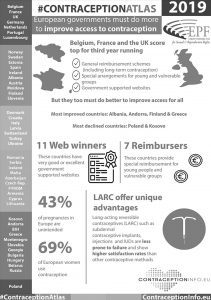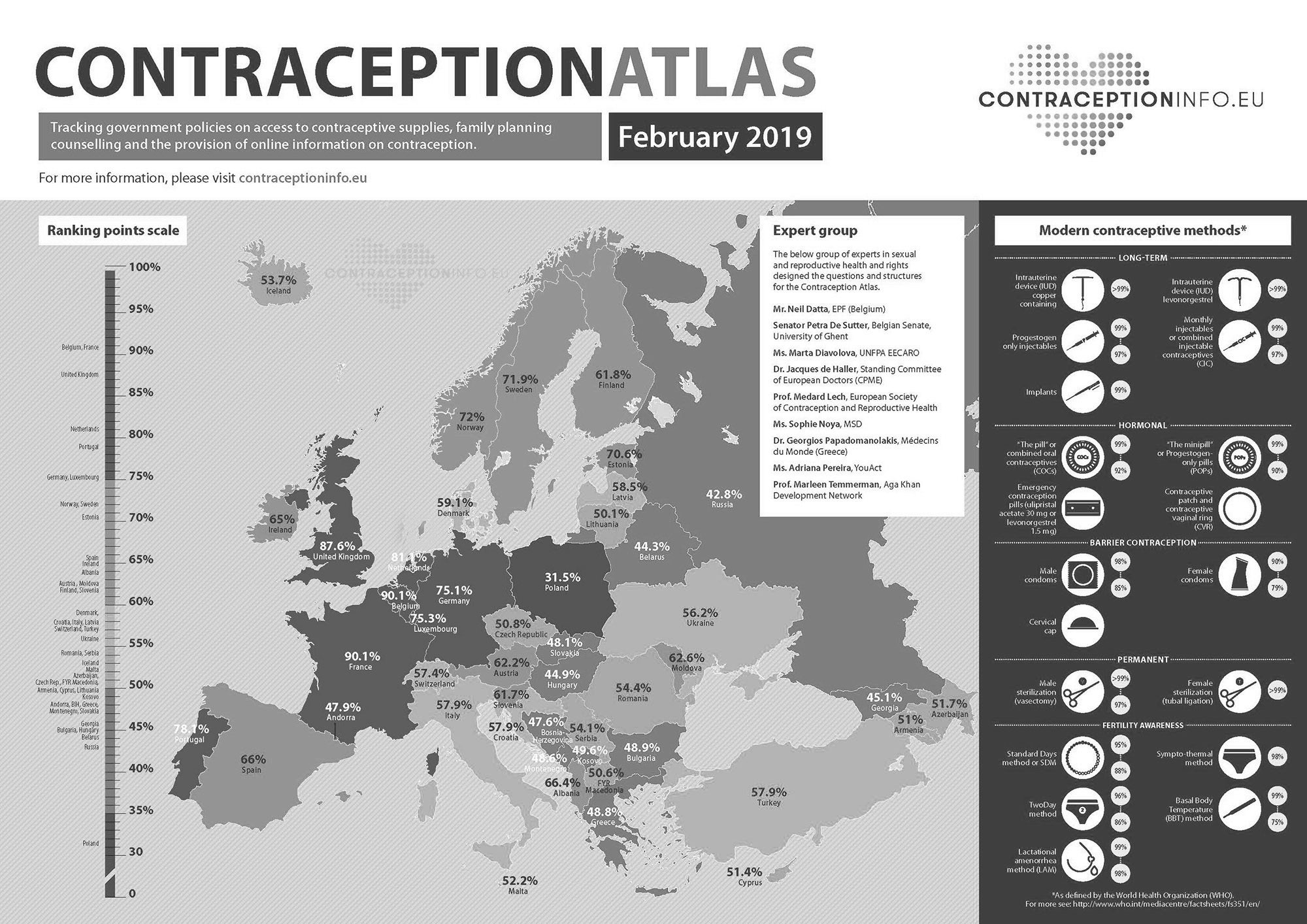The United Kingdom is one of the top three countries for making contraception available to women with Poland coming in dead last as over two-thirds of women have no access because doctors refuse to prescribe it.
The newly published Contraception Atlas shows the availability of modern contraception for the citizens of 46 European countries for the last three years and was carried out by the Federation for Women and Family Planning.
Poland’s figure of just 31.5 percent, the lowest in Europe, has been blamed on the country’s government not providing allowances or discounts for the poorest citizens or teenagers, as well as doctors illegally refusing to hand it out.

Liliana Religa, the Communications and promotions coordinator at Federation for Women and Family Planning told Central European News (CEN): “One of the main problems with the availability of contraception in Poland is the fact that doctors abuse the right of the conscience clause and very often refuse to prescript the contraception, which is illegal, but it’s still happening.
“There is no governmental website with information regarding that matter, people don’t know their rights, they don’t know where to look for help and very often, especially teenagers, feel ashamed to ask for it so they don’t use the contraception at all.”
The 2014 statistical yearbook shows 85.8 percent of Poland’s population is Catholic and this could have an influence on the use of contraception in the country because it goes against Church dogma.
Poland’s low score was influenced by the Minister of Health Konstanty Radziwill’s decision in 2017 to ensure girls under the age of 18 needed to have written permission from their parents if they want to use contraception. All forms of hormonal and long-term contraception require a prescription, along with emergency contraception.
Male condoms are readily available without a prescription whilst female condoms are not.
In the United Kingdom, the doctor, nurse or pharmacist will not tell the legal guardian of someone under 16 who wants contraception as long as they believe the youngster fully understands the information given and their decisions.
Religa said: “What should be done in Poland: the lifting of prescriptions, new-generation hormonal drugs should be refundable, we need education on contraception and also the availability of the gynaecologists”.
The countries closest to having 100 percent access to contraception are the United Kingdom (87.6 percent), France (90.1 percent) and Belgium (90.1 percent).
Religa gave the example of the story of an unnamed girl from the Polish city of Lodz to highlight the difficulties in obtaining contraception in the country: “She needed a prescription for emergency contraception. If she was at home, she could do it without a problem, but she was in Warsaw, so she went to the first health centre to see an internist and a gynaecologist, unsuccessfully.
“Then she went to five outpatient clinics and in each of them she heard ‘unfortunately, we cannot help you’ or ‘it’s not so simple, I have to examine you in detail’ or ‘we invite you to the gynaecologist, the next available date is in 5 months.”
According to the report, only two drugs are refundable in Poland but these are old drugs which contain hormones that cause many side effects and Polish women are not keen to use them.
To find out more about the author, editor or agency that supplied this story – please click below.
Story By: Bartosz Staszewski, Sub-Editor: Joseph Golder, Agency: Central European News




